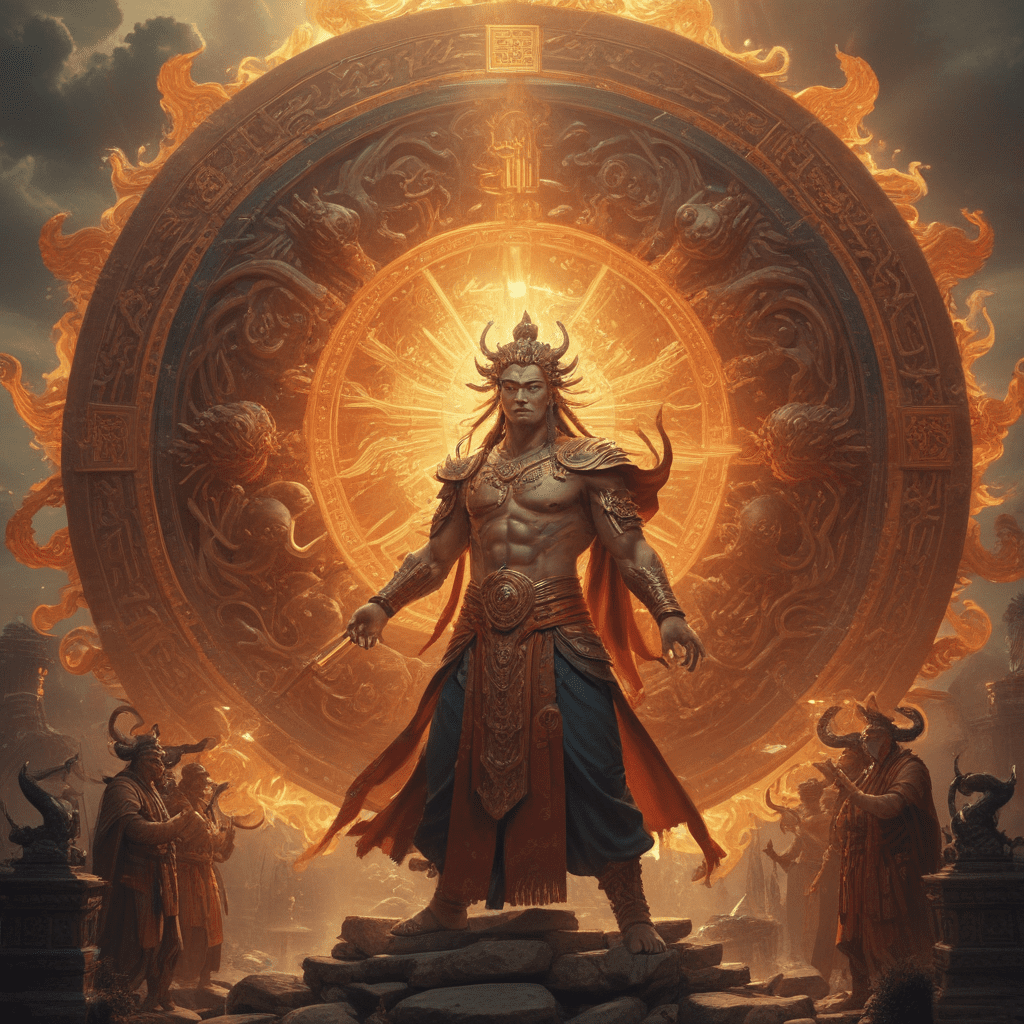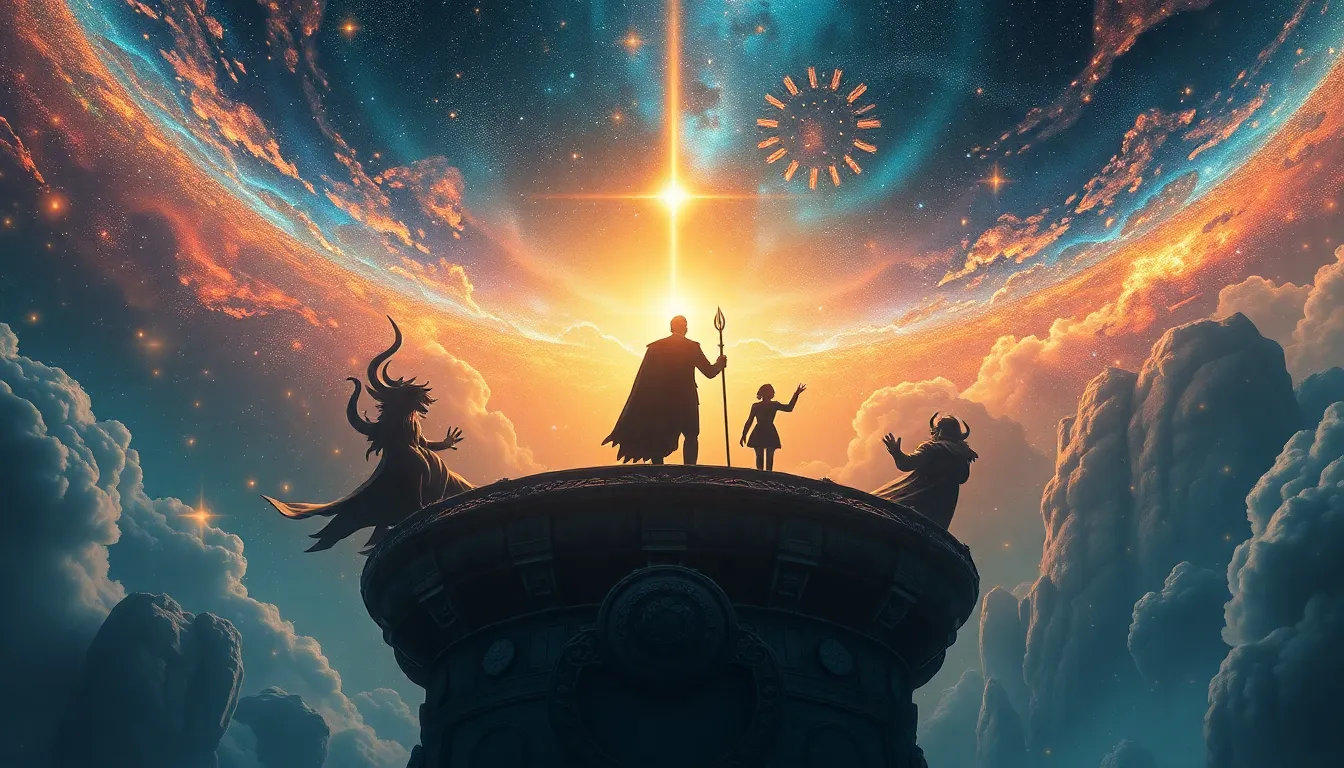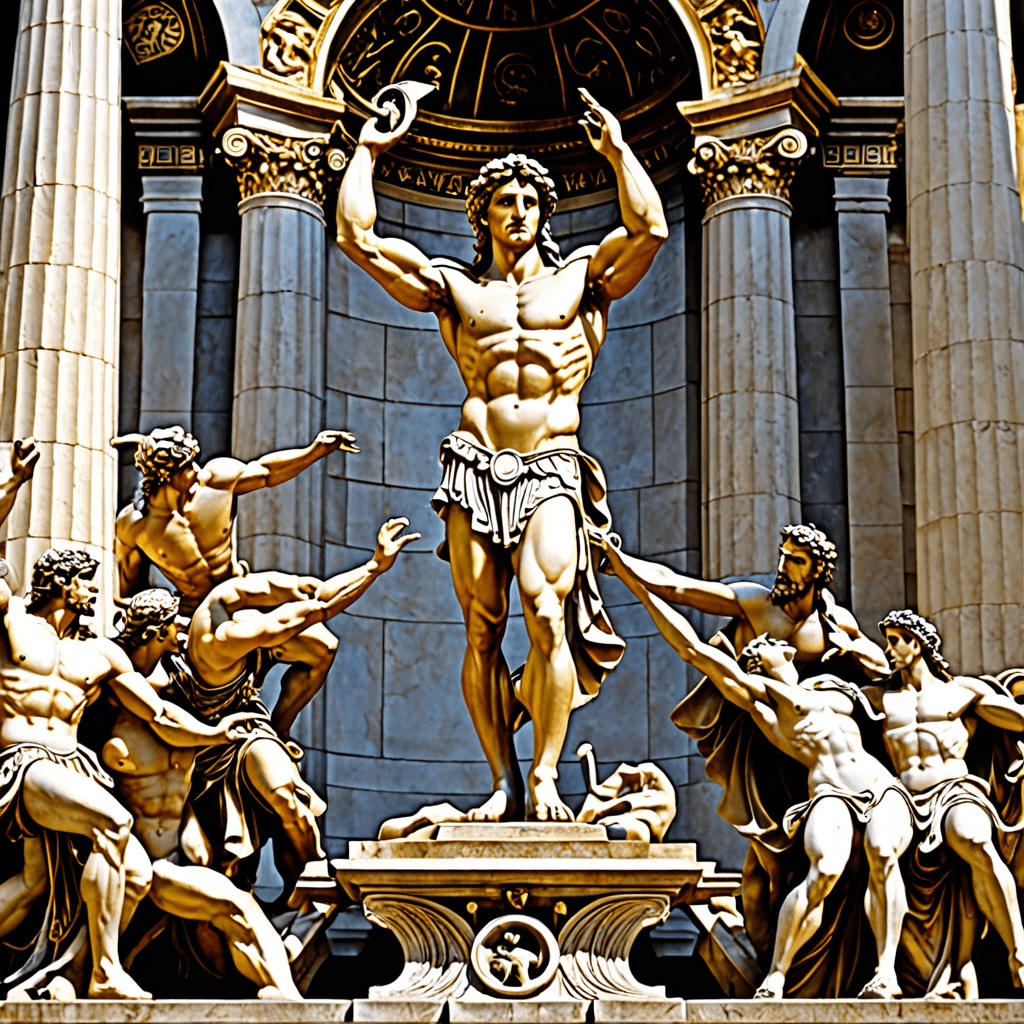Divine Retribution: The Myths That Will Leave You Speechless
1. Introduction to Divine Retribution
Divine retribution is a concept that resonates across various cultures and religions, often embodying the belief that a higher power enacts justice upon those who commit immoral acts. This belief underscores the significance of morality and ethics in human society, suggesting that actions have consequences that extend beyond the earthly realm. The aim of this article is to explore the myths surrounding divine retribution, examining its historical context, its role in mythology, and its implications in contemporary society.
2. Historical Context of Divine Retribution
The idea of divine justice has ancient roots, with early civilizations such as the Mesopotamians and Egyptians holding beliefs in gods who governed moral order. In Mesopotamia, the Code of Hammurabi outlined laws that were thought to be divinely inspired, indicating a direct connection between divine will and human justice.
In Egypt, the concept of Ma’at represented truth, balance, and order, with the belief that one’s actions were judged in the afterlife by Osiris. As civilizations evolved, major religions like Christianity, Hinduism, and Islam further developed the idea of divine retribution:
- Christianity: The Bible speaks of God’s judgment and the consequences of sin, epitomized in tales of punishment for transgressors.
- Hinduism: The law of karma illustrates how actions in this life affect one’s future reincarnations, reinforcing the idea of moral accountability.
- Islam: The Quran emphasizes that every soul will be judged by Allah for their deeds, leading to either reward in paradise or punishment in hell.
3. The Role of Divine Retribution in Mythology
In ancient mythologies, divine retribution often serves as a narrative device to illustrate the consequences of hubris and immorality. Greek and Roman mythologies are rich with examples:
- Zeus: The king of the Greek gods frequently punished mortals who defied the gods or acted unjustly. His wrath was swift and often brutal, serving as a warning to others.
- The Furies: In Greek mythology, the Furies were deities of vengeance who pursued wrongdoers relentlessly, symbolizing the unyielding nature of divine justice.
4. The Connection Between Morality and Divine Retribution
Morality plays a crucial role in shaping perceptions of divine retribution. Different cultures and religions provide frameworks for understanding what is considered right or wrong, and these frameworks often dictate the nature of divine punishment:
- In many religious texts, the link between justice and morality is explicit, with narratives that showcase the downfall of the wicked.
- Religious teachings often serve to reinforce the belief that divine retribution is not only inevitable but also necessary for maintaining moral order.
5. Contemporary Myths of Divine Retribution
In modern times, the concept of divine retribution has found its way into popular culture, often depicted in films, literature, and media. These interpretations reflect contemporary societal values and fears:
- Films: Movies like “The Green Mile” and “Seven” explore themes of justice and punishment, often highlighting the moral complexities of retribution.
- Literature: Novels such as “The Handmaid’s Tale” present dystopian visions where divine retribution is a tool of oppressive regimes.
- Media: News stories sometimes portray events as acts of divine justice, particularly in cases of natural disasters or tragic accidents, suggesting a moral reckoning.
6. Personal Accounts of Divine Retribution
Anecdotes from individuals who believe they have experienced divine retribution provide a fascinating glimpse into the psychological implications of this belief. Many report transformative experiences that reinforce their faith in divine justice:
- Some individuals recount instances where they faced dire consequences for unethical behavior, interpreting these events as divine punishment.
- Others describe moments of unexpected fortune or protection, viewing them as rewards for their moral conduct.
7. The Psychological and Sociological Perspectives
The allure of divine retribution can be understood through psychological and sociological lenses. Humans are inherently drawn to narratives that provide explanations for suffering and injustice:
- Belief in divine justice can provide comfort, suggesting that wrongdoers will ultimately face consequences.
- This belief can also influence societal norms, promoting ethical behavior by instilling fear of divine punishment.
8. Critiques and Counterarguments
Despite the prevalence of beliefs in divine retribution, critiques exist. Skeptics often argue against the existence of a just deity, pointing to the randomness of suffering and injustice in the world:
- Alternative explanations for events attributed to divine punishment include psychological phenomena, social justice issues, and coincidence.
- Some argue that attributing events to divine retribution can lead to a lack of accountability for social injustices.
9. The Future of Divine Retribution in a Secular World
In an increasingly secular world, traditional beliefs in divine retribution face challenges from globalization and scientific advancements. As societies evolve, perceptions of justice and morality may shift:
- Globalization has led to a blend of cultural beliefs, resulting in diverse interpretations of justice.
- Scientific advancements challenge the notion of divine intervention, offering rational explanations for events historically seen as acts of divine retribution.
10. Conclusion: The Enduring Power of Myth
In conclusion, the myths surrounding divine retribution are deeply ingrained in human culture, reflecting our understanding of morality, justice, and the consequences of our actions. These myths serve not only as cautionary tales but also as a means of exploring our own ethical frameworks. As we navigate the complexities of modern society, the enduring power of these myths continues to shape our perceptions of justice and the human experience.




